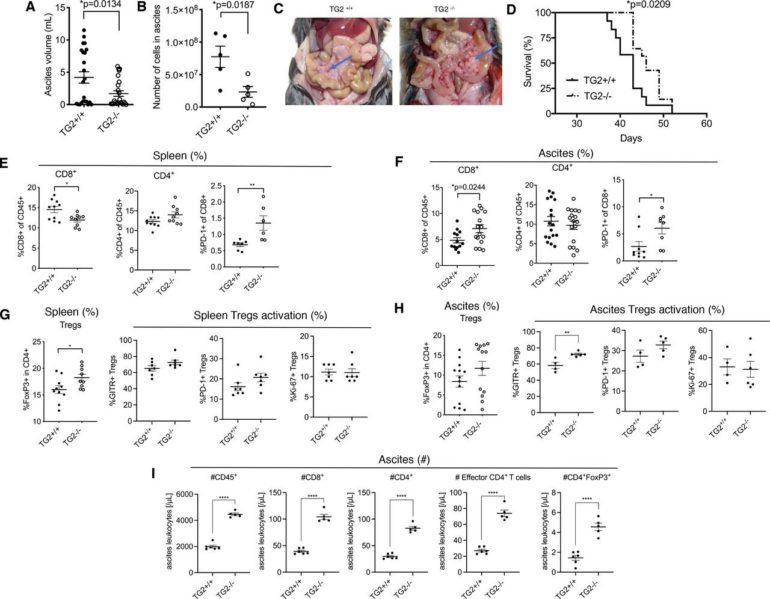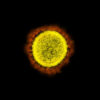TG2, an enzyme known to help cancers spread more quickly, also plays a role in regulating T-cells, according to a Northwestern Medicine study published in the Journal for ImmunoTherapy of Cancer.
Inhibiting TG2 in non-cancer cells also boosted immune activity, a phenomenon that could be leveraged in cancer therapy, according to Daniela Matei, MD, the Diana, Princess of Wales Professor of Cancer Research, chief of Reproductive Science in Medicine in the Department of Obstetrics and Gynecology and senior author of the study.
“If we create a drug that inhibits TG2, it could work in cancer cells and in host cells,” said Matei, who is also a professor of Medicine in the Division of Hematology and Oncology.
Matei’s laboratory has studied the impact of elevated TG2 expression in ovarian cancer for a decade, consistently finding that TG2 increases ovarian cancer’s spread to other locations in the body. However, what impact TG2 has in normal cells remained unknown.
In the current study, Matei and co-author Bin Zhang, MD, Ph.D., professor of Medicine in the Division of Hematology and Oncology and of Microbiology-Immunology, studied the effects of knocking out expression of the gene that codes for TG2 in mouse models of ovarian cancer.
The investigators discovered that, surprisingly, loss of TG2 in healthy cells is accompanied by a more robust immune response. Without TG2, an imbalance in STAT proteins causes increased cytotoxic T-cell activity, leading to reduced tumor progression.
“TG2 is necessary in the body, so we believe loss of TG2 triggers this compensatory mechanism,” Matei said.
Matei and collaborators are currently exploring strategies to inhibit TG2 in cancer cells, but now are designing inhibitors that will work in immune cells as well.
“Our current inhibitor is designed to block adhesion of cancer cells to the extracellular matrix, but other approaches can degrade the entire TG2 protein—which could help kill cancer cells, alter anti-tumor immunity and delay cancer progression,” Matei said.
Platinum-chemotherapy can enhance the treatment resistance of ovarian cancer cells
More information:
Livia Elena Sima et al, Loss of host tissue transglutaminase boosts antitumor T cell immunity by altering STAT1/STAT3 phosphorylation in ovarian cancer, Journal for ImmunoTherapy of Cancer (2021). DOI: 10.1136/jitc-2021-002682
Provided by
Northwestern University
Citation:
Anti-cancer inhibitor could have dual effect (2021, October 22)
retrieved 24 October 2021
from https://medicalxpress.com/news/2021-10-anti-cancer-inhibitor-dual-effect.html
This document is subject to copyright. Apart from any fair dealing for the purpose of private study or research, no
part may be reproduced without the written permission. The content is provided for information purposes only.



